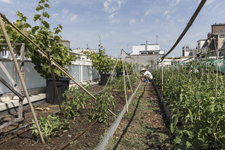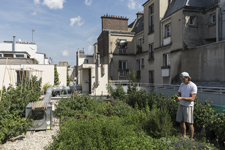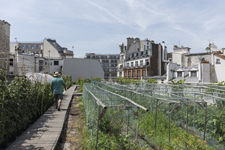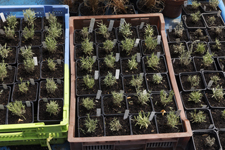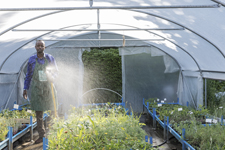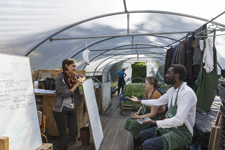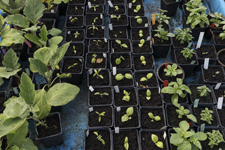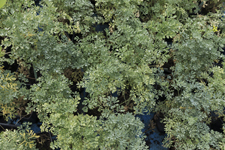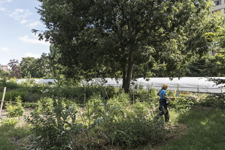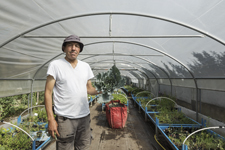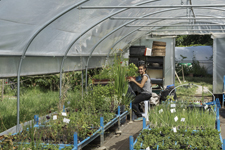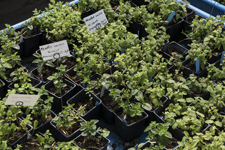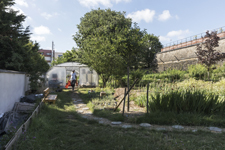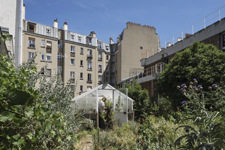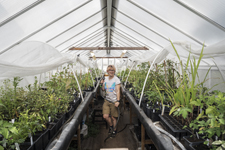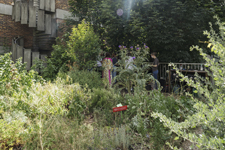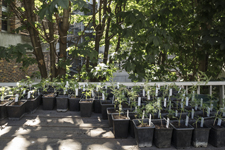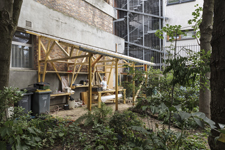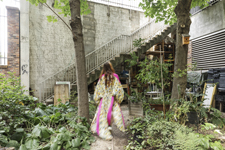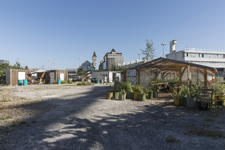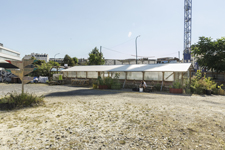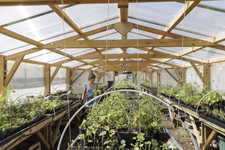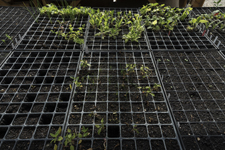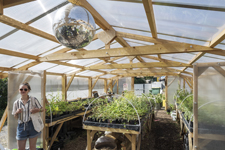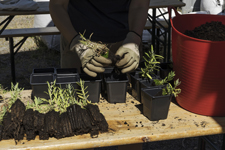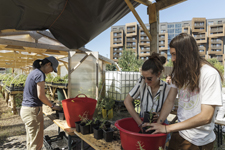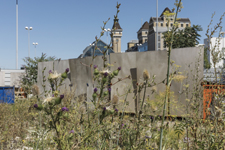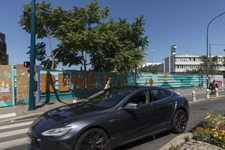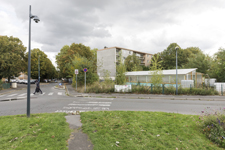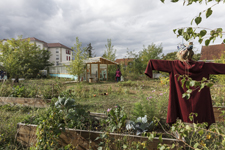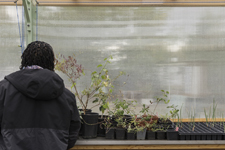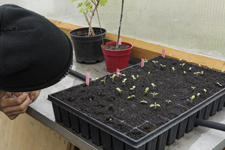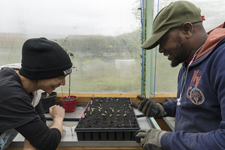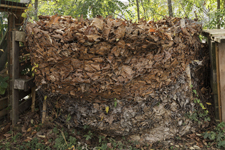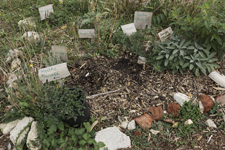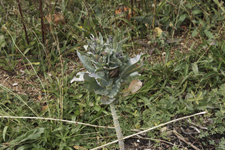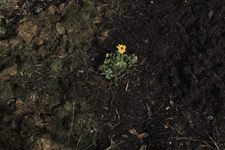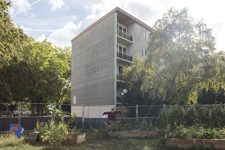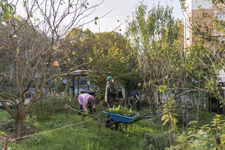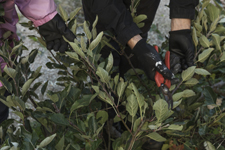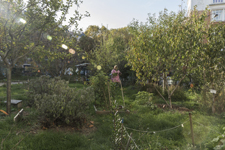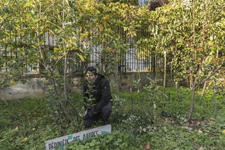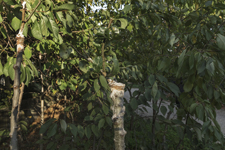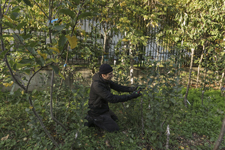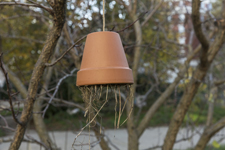Les champs de la ville – Paris et les villes avoisinantes
Je pars photographier les champs de Paris et des villes avoisinantes et constater l'émergence d'un nouvel urbanisme agricole qui réconcilierait la ville avec la nature, l'agriculture, le vivant. Je suis la progression tentaculaire de cette renaissance, en partant des hauteurs de la ville. Les fermes se hissent sur les toitures terrasses des collèges, gymnases, logements, hôtel de Ville, hôpitaux... Les cultures se prolongent à la verticale sur les murs des bâtiments. Elles se poursuivent au sol dans les jardins potagers collectifs et s'enfoncent dans les sous-sols. L'agriculture urbaine est protéiforme. Elle s'adapte et modifie ses réponses pour continuer son avancée en territoire hostile. Elle varie ses méthodes de production entre la pleine terre et le hors-sol. Elle se veut productive, participative, pédagogique.
Il s'agit de mettre en image ce nouveau récit - l’émergence d’une ville durable - qui tente de renouer les liens avec l'histoire agricole du bassin francilien, d'exister dans la limite des espaces mis à disposition par la Ville et ses partenaires fonciers, et d'innover pour s'adapter à son environnement.
"Qu'est-ce que cette Nature à laquelle il serait soudainement si crucial de faire place parmi nos constructions pour enrayer la chute massive du vivant ?" (Augustin Rosenstiehl, architecte et fondateur en 2008 du Laboratoire d'Urbanisme Agricole).
Apparaissent dans ces paysages photographiques, les pionniers de cette reconquête : les agriculteurs qui répondent aux appels à projet initiés par la Ville et les citadins qui entretiennent bénévolement les potagers collectifs. Comment envisagent-ils leur rôle ? Quelles sont leurs attentes ? L'urbaniste Sébastien Goelzer, spécialisé dans la permaculture urbaine, écrit en 2017 dans le site en ligne Revue sur mesure : "Cette agriculture des communs - ou ville comestible - permet de défendre une autre manière de "ménager" les territoires en faisant converger les questions alimentaires, environnementales, économiques ou sociales, jusqu’à "faire mouvement". Un mouvement pour une ville comestible, faite pour et par ses habitants, qui laisse une plus large place à l’autogestion."
Paris peut-elle réconcilier le vivant avec son environnement ? Quel futur pour la ville ?
The fields of the city - Paris and the surrounding cities - ongoing series
I photograph the fields of Paris and the surrounding cities, to observe the emergence of a new agricultural urbanism that would reconcile the city with nature, agriculture and the living. I follow the sprawling progress of this renaissance, starting from the heights of the city. Farms rise from the flat roofs of colleges, gymnasiums, housing, city halls, hospitals... Crops extend vertically up the walls of buildings. They continue on the ground in communal vegetable gardens and sink into basements. Urban agriculture is protean. It adapts and modifies its responses to keep moving forward in hostile territory. It varies its production methods, from open-ground to soilless. It aims to be productive, participatory and educational.
The aim is to bring to life this new narrative - the emergence of a sustainable city - which seeks to reconnect with the agricultural history of the Ile-de-France, to exist within the limits of the spaces made available by the city and its land partners, and to innovate in order to adapt to its environment.
"What is this Nature to which it would suddenly be so crucial to make room among our constructions to halt the massive decline of the living?" (Augustin Rosenstiehl, architect and founder in 2008 of the Laboratoire d'Urbanisme Agricole).
In these photographic landscapes, we see the pioneers of this reconquest: the farmers who respond to calls for projects initiated by the city, and the city-dwellers who volunteer to maintain the collective vegetable gardens. How do they see their role? What are their expectations? Urban planner Sébastien Goelzer, who specializes in urban permaculture, wrote in 2017 in the online site Revue sur mesure: "This agriculture of the commons - or edible city - makes it possible to defend another way of 'sparing' territories by converging food, environmental, economic or social issues, to the point of 'making a movement'." A movement for an edible city, made for and by its inhabitants, that leaves more room for self-management."
Can Paris reconcile the living with the environment? What future for the city? |





